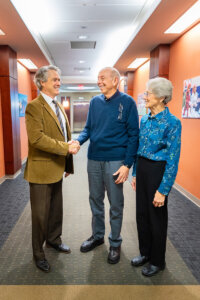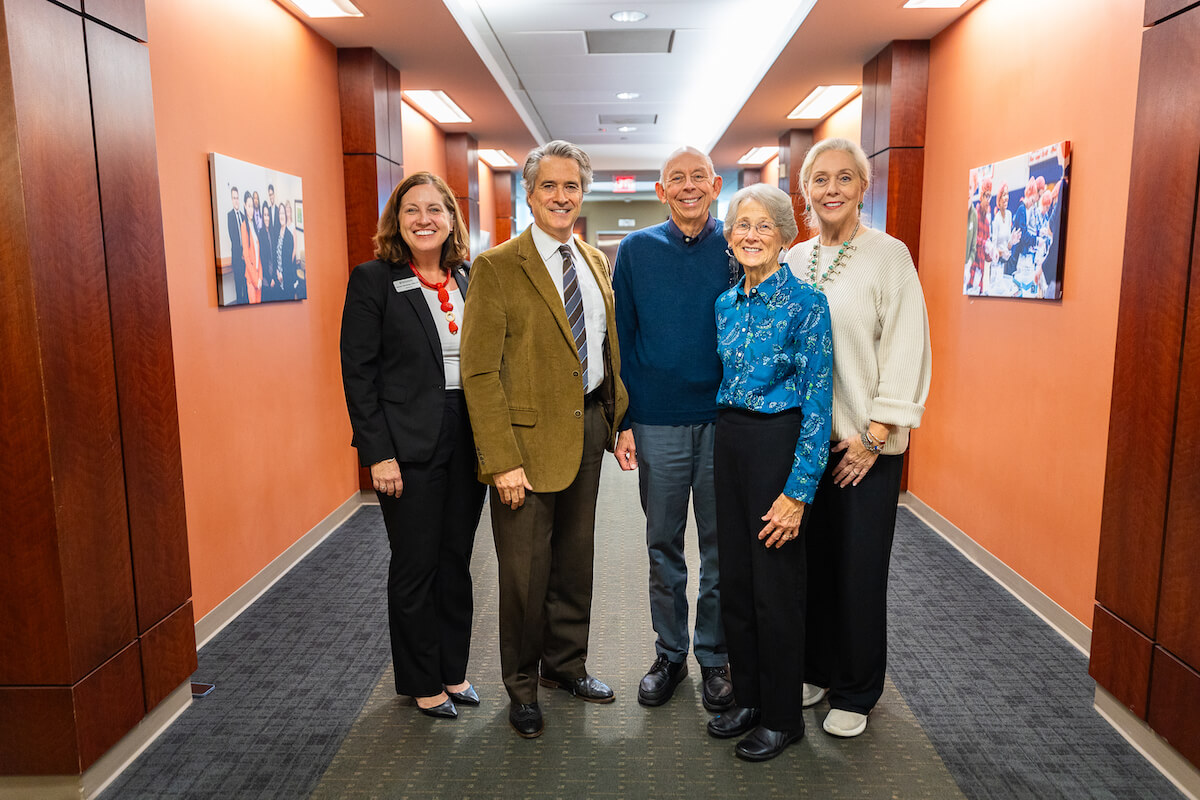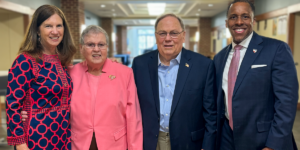Shenandoah University’s School of Business is bolstering its efforts to develop leadership and practical solutions for a sustainable economy thanks to a substantial gift from a longtime contributor.
The generous gift from David B. Baxa, a member of Shenandoah University’s Board of Trustees, and his wife, Carole C. “Lynn” Baxa, will be used to create the Baxa Family Chair for Stakeholder Capitalism in the School of Business, an endowed position that will complement the business school’s work in building a local, national and global economy that promotes social cohesion, inclusive long-term prosperity and environmental health.
The work and initiatives of the Baxa Family Chair for Stakeholder Capitalism will help the School of Business expand learning opportunities in and outside of the classroom for undergraduate and graduate degree programs. The position also will contribute to developing faculty and curricula that is integrated, holistic and responsive to business and societal needs to promote business sustainability.
 Giles Jackson, Ph.D., director of Shenandoah’s Institute for Business, Sustainability and Society, was appointed as the first SU faculty member to hold the position of Baxa Family Chair for Stakeholder Capitalism.
Giles Jackson, Ph.D., director of Shenandoah’s Institute for Business, Sustainability and Society, was appointed as the first SU faculty member to hold the position of Baxa Family Chair for Stakeholder Capitalism.
Upon announcement of his appointment at the business school’s monthly faculty meeting on Oct. 18, Dr. Jackson quoted writer H.G. Wells, who once wrote: “Human history is more and more a race between education and catastrophe.”
“Through the foresight and generosity of good people like David and Lynn, I think it renews our faith that we can win this race,” Jackson said. “We’re really humbled and honored by the trust they’ve placed in us as a school, and we’ll work and do our best as a faculty to fulfill the dreams that we all share.”
David Baxa, in addition to serving as a Shenandoah trustee since 2015, has served on the School of Business Advisory Board since 2007. Baxa, who has dedicated his professional life to helping large enterprises reduce costs through better use and management of buildings, land and infrastructure assets in their real property portfolios, began teaching a sustainability course with Jackson about six years ago.
Under stakeholder capitalism, businesses must consider their value in relation to their customers, suppliers, employees and affected communities, as well as to their investors and owners. This, in turn, promotes a strong foundation for a business’ long-term sustainability and avoids what economists call “adverse externalities” that might otherwise occur.
“I just felt like we could do something to help the business school do a more complete job in terms of embracing the notion of sustainability as it relates to business processes, demands and the whole litany of things that they try to teach us,” Baxa said. “We hope that this gift will enable a long-term position as it relates to stakeholder capitalism, as it relates to sustainability, and it will take hold and grow in the university.”
Astrid Sheil, Ph.D., dean of the School of Business, lauded the Baxa family’s “very powerful” relationship with Shenandoah University.
“Hopefully, this will open a door for us in terms of bringing other people here for sustainability conferences, for economics, for supply chain, and that we can continue looking at how sustainability works across the board, not just as a standalone but in everything that we do in the School of Business,” Dr. Sheil said. “This is a brand-new opportunity for us.”




